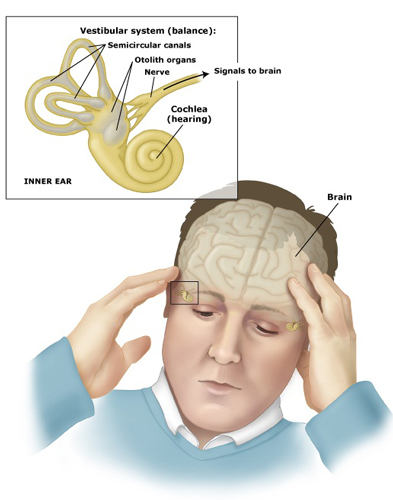
- Although we take balance for granted, it is a complex process and requires information from the eyes, the balance organs of the inner ear (semicircular canals) and special sensors in the major joints, particularly in the neck. This information is sent to a part of the brain called the cerebellum. A small problem with any one of these information sources can make you feel very dizzy.
- Dizziness that is caused by suddenly changing position is often related to neck problems, such as arthritis or whiplash injury, but it can also be caused by crystals forming in the fluid of one of the semicircular canals of the inner ear, which are shaken up with sudden movement.
- Occasionally, the inner ear balance organs may suddenly stop working. Common causes of this are viral infections and Ménière’s disease. Both of these conditions typically cause severe dizziness for several hours or days, and people often feel so sick that they vomit. Anti-sickness tablets or injections may be needed as well as bed rest.
- Severe dizziness can be very frightening, and people often assume it must be due to a serious disease, such as a stroke or brain tumour. In fact, most balance problems get better on their own quite quickly and do not have any permanent effects. You rarely need to take medication or have treatment for a prolonged period of time.
- Tests are not usually needed to diagnose a balance problem.
